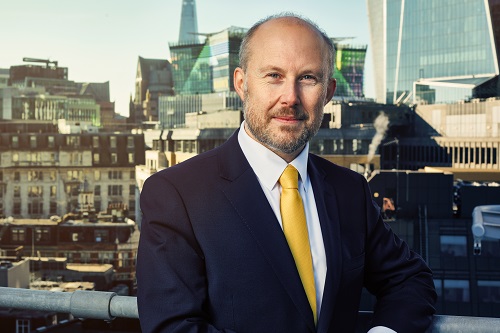![]()
This question, she said, asks how the court can assess damages for ‘pain, suffering and loss of amenity (PSLA) where the claimant suffers a whiplash injury which comes within the scope of the 2018 Act and attracts a tariff award stipulated by the Whiplash Injury Regulations 2021’ but also suffering suffers additional injury which falls outside the scope of the 2018 Act and does not attract a tariff award?
In addition, she said, the appeal and cross appeal in Rabot v Hassam (Rabot) and Briggs v Laditan (Briggs) concern claims which arise out of a road traffic accident as a result of which each claimant suffered whiplash and other injuries.
The acceptance of the appeals has garnered a mixed reaction from the insurance sector.
Commenting on the ruling, Nick Kelsall, head of motor claims at Allianz Commercial stated when the whiplash reforms were first introduced, they established limits to compensate claimants for their genuine injuries – done with the ambition of deterring fraudulent or exaggerated claims.
“However,” he said, “our data shows that since whiplash compensation has been capped, we’ve received more claims for mixed injuries, which would suggest that some are gaming the system to inflate their payout.”
Motor insurers have always looked to reduce claims costs to keep premiums commensurately down, he said, and in the view of Allianz Commercial, this remains the right approach, particularly at a time of such high inflation. He added that the business will monitor the impact of this ruling, but is sure it will now see further ‘gaming’, potentially reducing the benefits from the whiplash reforms.
Martin Milliner, LV= GI claims director, added: “Today’s judgment is a hammer blow to hard pressed motorists. The ruling will undermine the intention of the whiplash reforms that were designed to pass back millions of pounds in lower premiums as a result of reduced volumes and costs of whiplash claims. Britain could now become the bruises and sprains capital of the world.”
Meanwhile, Matthew Maxwell Scott, executive director of ACSO (the Association of Consumer Support Organisations), heralded the judgement as “worth waiting for”, especially due to the court’s view that compensation for mixed injuries should reflect each injury.
“It seemed to us perverse that an injured person received less compensation for, say, a fracture or laceration, because they also suffered a whiplash injury,” he said. “The court prioritising the needs and requirements of injured people should be welcomed by all who believe in good consumer outcomes.”
Scott added that the absence of judicial direction on how to compensate for mixed injuries in the Official Injury Claim portal has been a significant problem since the portal was launched over 18 months ago. Today’s judgment will come as a relief to many, he said, and looking forward the ACSO urges both claimant and defendant representatives to collaborate to improve settlement times and make sure consumers get the right service levels.
“The government’s rationale for its reforms was partly to make the process more consumer-friendly, but the OIC has been dogged with problems, including the mixed injuries position,” he said. “This inevitable issue was clearly flagged to the Ministry of Justice before implementation, but ministers chose to proceed anyway. Regardless of today’s positive news, it’s not acceptable that consumers and practitioners have been forced to wait until 2023 to get this important matter resolved.”
Stewart McCulloch, MD of the digital ADR provider Claimspace, highlighted the “clarity” provided by the Court of Appeal’s ruling today, noting that thousands of backlogged disputed cases can potentially be brought before the courts for resolution. These cases can now be arbitrated against a background of clear legal principles that were lacking until today, he said.
However, he also noted his concern that there is now the risk of a logjam of mixed injury OIC cases building up at the courts. Only around 1500 disputed OIC cases have been processed by the courts since June 2021, he said, but it has taken an average of 20 twenty weeks to dispose of them. He noted that delays at court can expect to become significant which has “the potential to be a calamity” and so encouraged the use of ADR whenever possible.”
Following the decision, Andrew Wild, head of legal practice at First4InjuryClaims, said the “long-awaited ruling is welcomed.”
“Today’s decision will assist with putting to an end the limbo that lawyers and claimants have found themselves in since the Official Injury Claim portal went live,” he said. “Having clear guidance should enable the personal injury sector, and the team here at First4InjuryClaims, to clear the bottleneck of cases that have been building up whilst waiting for this decision.”
He continued that hopefully the decision should help reduce the average length of time it takes to settle a case in the portal – which currently stands at 227 days – enhancing the claims experience for clients.
Matthew Currie, chief legal officer at Minster Law also emphasised the clarity invited by the court’s decision and stated that the ruling provides “some certainty for insurers and means that a potential wave of litigation can be avoided”. He added that this should help remove potential pressure on the court system which has been struggling to cope for a long time.
“It remains disappointing that both consumers and insurers have faced uncertainty in relation to this issue until now,” he added. “The policy and guidance could have been developed as part of the reform package and included in legislation; lessons must be learnt for future reforms in this and other areas, especially those which directly impact the general public.”
Ian Davies, partner and head of motor at global law firm Kennedys also commented on the decision, noting that today’s judgement, “Perhaps unsurprisingly [confirms] the approach in the 2011 Court of Appeal ruling in Sadler v Filipiak.
“With the comments of Davies LJ providing encouragement to the claimant market and the dissenting judgment of Voss MR ensuring the defendant has more than a little hope going forward, the focus will turn back to the detail of each medical report and the case presented on an individual basis. More appeals are a strong possibility.”
The ABI’s assistant director, head of general insurance policy Mark Shepherd, also commented on the ruling, calling it a “disappointing judgment from the Court of Appeal that lacks the desired clarity for claimants and defendants on how to value mixed injuries.”
The ruling risks undermining the intent of the whiplash reforms to create a simplified and cost-effective system, he said, while opening the door to double counting of injuries that could significantly erode the benefits of the reforms for premium paying motorists.
“It is unfortunate that the approach advocated by the Master of the Rolls was not adopted by the majority of the Court, as this would have provided the clear guidance that is needed whilst ensuring access to fair and proportionate compensation for claimants,” he continued. “In the face of rising cost pressures, motor insurers are doing all they can to keep prices competitive for customers, but today’s decision will only make it harder to keep premiums as low as they otherwise could be.”
What are your thoughts on this ruling? Please feel free to share your comments below.
Source




















